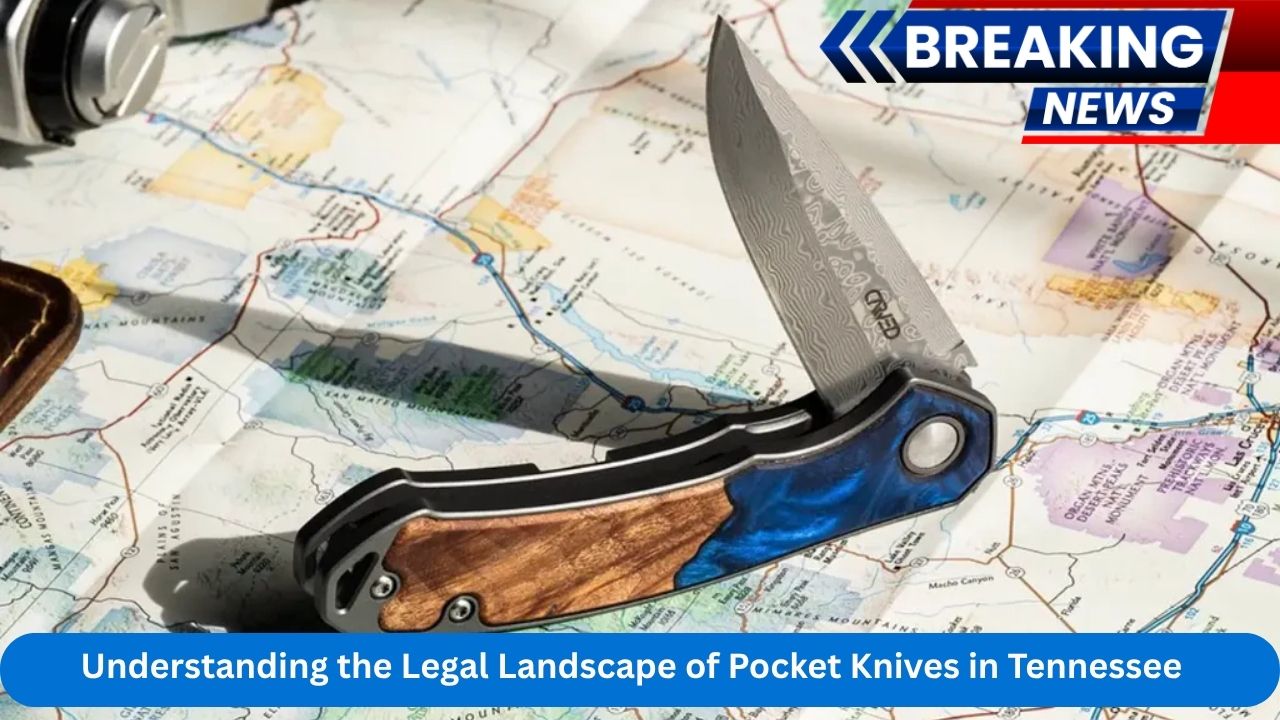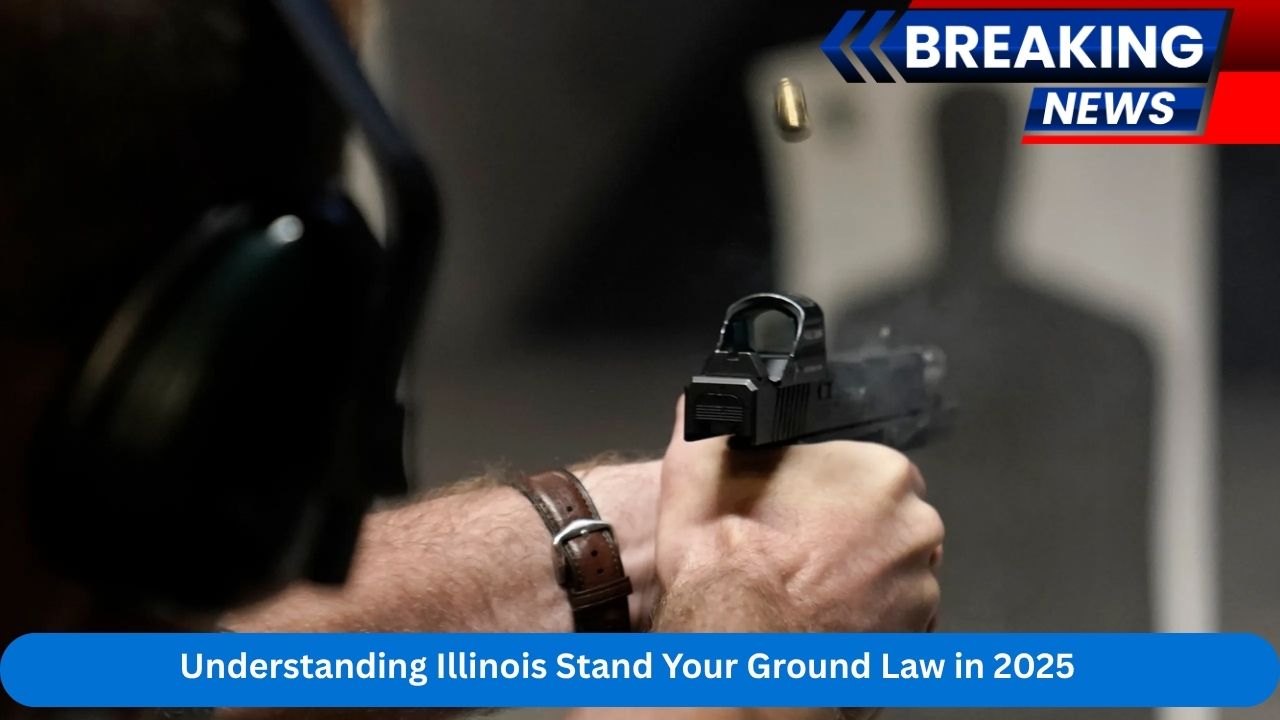Tennessee is widely recognized as one of the most knife‑friendly states in the U.S., offering one of the most permissive legal frameworks for owning and carrying pocket knives and other blades. This comprehensive guide will navigate the state statutes, school property restrictions, historical background, city‑level nuances, and practical tips, ensuring residents and visitors are well-informed on the legal nuances of pocket knives in the Volunteer State.
What Qualifies as a Pocket Knife in Tennessee?
In Tennessee law, a pocket knife is explicitly defined as a knife with one or more blades that fold or collapse into a handle and can be carried inside a pocket when folded. These are commonly known as folding knives—ranging from everyday utility blades to ornate collectibles. Essentially, if a blade tucks into a handle and fits in a pocket, it’s a pocket knife as far as Tennessee statute is concerned.
Ownership and Carry Rights: Broad and Unrestricted
Full Legal Ownership
Tennessee residents have the unrestricted right to own any type of knife, be it automatic, fixed‑blade, dagger, Bowie, butterfly, or switchblade. There are no statewide bans or blade‑length restrictions, meaning even large or automatic knives are legally held without special licenses.
Carrying in Public
Both open carry and concealed carry of knives—including pocket knives—are perfectly lawful throughout Tennessee, as long as the carrier does not have criminal intent. The decisive legal test is intent: carrying a knife as a tool is lawful; carrying it with malicious or criminal intent is not. Tennessee law still defines the offense of carrying “with intent to go armed,” but without specifying length or type, and this offense is only triggered by ill intent.
The Role of Intent: Lawful vs. Criminal Carry
The cornerstone of Tennessee knife law is intent. Simply carrying a knife—even if large or automatic—is not illegal by itself. However:
-
If one carries a knife with intent to be armed, i.e., for self‑defense, intimidation, or to use during a crime, this becomes a Class E felony, punishable by up to six years imprisonment and fines up to $3,000 (or $6,000 if a switchblade is used during a crime).
-
Law enforcement and courts must prove the person intended to use the knife violently or in furtherance of crime—not merely that they carried it.
Therefore, carrying a knife responsibly—for utility, opening packages, or general everyday tasks—is permitted. Publicly stating its purpose as “for protection” may trigger scrutiny, but describing it as a tool is recommended.
School Zone Restrictions: A Significant Exception
Knife Prohibition on School Property
Regardless of type, knives are banned on school property in Tennessee when carried with intent to go armed. This includes:
-
Public or private K‑12 campuses
-
University grounds
-
School buildings, buses, athletic and recreational areas
Violating this prohibition is a Class E felony, even if the knife is a small folding blade, unless the individual can show an affirmative defense (for example, carrying it as a tool for school‑sanctioned activities or being a nonstudent adult carrying a concealed pocket knife while voting).
What Counts as a Pocket Knife in School Zones
Only a folding, pocket knife qualifies for the limited exception for voting adults under school carry laws. Other knives—daggers, Bowie knives, fixed blades—do not.
Historical Shift: From Restrictions to Freedom in 2014
In July 2014, Tennessee repealed its ban on automatic knives and lifted blade‑length restrictions, signaling a dramatic shift to a more permissive posture on knife rights. Prior to this, switchblades and large knives were restricted; the repeal eliminated these prohibitions. Public and collector groups praised the change, though penalties remain elevated for those who carry knives with criminal intent.
Fixed‑Blade vs. Folding: Understanding Practical Differences
Fixed‑Blade Knives
-
Always visible and cannot be concealed.
-
Considered more serious; may raise suspicion in certain contexts.
-
Legal to carry but potentially viewed more critically by law enforcement if out in public without clear utilitarian purpose.
Folding (Pocket) Knives
-
Easiest to carry, especially concealed.
-
By statute, if you have a folding pocket knife while voting as an adult on school property, it may be legally permitted—provided you do not handle it.
City and Local Ordinances: Predictable Due to State Preemption
Statewide Preemption
Tennessee enacted statewide uniformity laws—cities and counties cannot deviate from state law regarding knife ownership, possession, transfer, or carry.
City‑Level Realities
Despite preemption, understanding local norms in large cities like Nashville and Memphis is wise:
-
Routine encounters with police are likely resolved quickly if the carrier states its utility purpose.
-
Fixed‑blade knives may result in brief detainment or confiscation until context is clarified.
-
In any nonjudicial interaction, stating the knife is for “utility” aligns with best practice and helps clarify intent.
Legal Scenarios and Hypotheticals
Here are a few illustrative scenarios to show how laws apply:
-
Carrying an automatic pocket knife in Jackson shopping mall
-
Legal, assuming no criminal intent. If stopped, declare it’s a tool (e.g., “I use it for opening boxes”).
-
-
A student carrying a pocket knife to school
-
Illegal if intent is to carry armed; even if small, presence is prohibited without permission or clear benign purpose.
-
-
Voting as a non‑student adult, concealed pocket knife in hand
-
Permitted on school property, provided it remains concealed and unused.
-
-
Using a Bowie’s knife to butcher a deer in the backwoods
-
Legal to possess and use on private or public land, assuming no criminal intent and away from school zones.
-
-
Carrying a fixed‑blade dagger at a protest downtown
-
While carry itself isn’t illegal, a large fixed blade may attract law enforcement attention and prompt demonstrator profiling. Be clear about benign intent.
-
Legal Penalties: Understanding the Stakes
-
No felony or misdemeanor for lawful possession or carry of knives, regardless of type or size—unless intent is illegal.
-
Class E felony for carrying with criminal intent: up to 6 years in prison, up to $3,000 fine (or double fine if a switchblade is involved during a crime).
-
Special provisions escalate penalties when knives are used or intended to be used in a crime.
Practical Advice for Knife Carriers
-
Always describe your knife as a tool, not a weapon (“utility knife for daily tasks”).
-
Carry documentation or memorize statute summaries as reference if questioned.
-
Choose folding knives when possible for discreet carry and easier compliance.
-
Consider fixed blades only when context requires it, like hunting or camping.
-
Be especially cautious around schools, courthouses, federal properties.
-
Know the knife is not unlawful in Tennessee, but the legal outcome depends on how your intent and action are interpreted.
Pocket Knife Culture in Tennessee
From East Tennessee’s Appalachian whittling traditions to West Tennessee’s outdoors culture, knives are a timeless symbol of utility and heritage:
-
Knoxville, Gatlinburg, and the Smokies celebrate craftsmanship and utility.
-
Nashville’s music‑town culture embraces knives as backstage gear and collectors’ items.
-
Memphis hunting communities rely on large fixed blades for field dressing game.
Tennessee knife laws reflect this robust utilitarian culture—prioritizing practical ownership while discouraging criminal misuse.
Statistical Landscape: Knife‑Related Crime in Tennessee
Tennessee reports annual knife‑involved crime data via the Tennessee Bureau of Investigation. For example, in 2024, knife‑involved assaults comprised a small but notable portion of violent crime:
-
Total assaults: ~30,000
-
Knife‑related assaults: < 10% (~2,500)
-
Knife murders: < 5% of homicides
The majority involve illegal use rather than lawful open or concealed carry.
How Tennessee Compares Nationally
Nationwide, Tennessee ranks among the top ten most permissive states for knife laws. Most states restrict blade length, auto knives, or concealment. Tennessee, by contrast, lifts all significant restrictions, provided there’s no criminal intent behind possession.
Federal and School Regulations to Remember
Even in Tennessee, federal regulations override state law in certain contexts:
-
TSA prohibits knives in carry-on bags, regardless of size—must be in checked baggage.
-
Federal buildings and courthouses restrict all knives unless specifically exempted.
Similarly, school rules tightly restrict all weapons on their grounds—even if state law permits general carry.
Final Thoughts
Tennessee’s legal framework empowers residents to own and carry almost any type of knife. The simplicity of folding knives and the breadth of permissible tools make it easy to align with state law—as long as intent remains benign.
While the law maintains few actual restrictions, awareness of school zones, federal zones, and the weight of intent is essential. With prudent handling, carrying a pocket knife in Tennessee is both lawful and culturally accepted.
FAQ (Common Questions)
Can I carry a switchblade in Tennessee?
Yes—post‑2014 repeal, switchblades are legal to own and carry; illegal only if carried with intent to commit a crime.
Is there a blade‑length limit?
No. Tennessee does not impose statewide restrictions on knife length.
What about butterfly knives?
Legal to own and carry, including concealed, so long as carried without criminal intent.
Are fixed‑blades allowed?
Yes. But being always visible may invite questions—carry responsibly.
What about school zones?
Knives are banned on all school property if carried with any intent to be armed; only a small concealed pocket knife by an adult may be allowed for voting.
Can a city do more than state?
No. State law preempts local governments, so knife laws are uniform across Tennessee.
Conclusion
Tennessee’s knife laws stand out for their clarity, permissiveness, and ease of compliance. The most important factors are your purpose and your location. Pine for simplicity? Keep a small folding utility knife. Concerned about size? Even a large Bowie is legal if carried without ill intent. Always avoid school zones. And if asked, say it’s a tool—that simple statement aligns you with the spirit and letter of Tennessee law.
With understanding and care, you can confidently carry your pocket knife in Tennessee—where blades are tools, not threats.












Leave a Reply